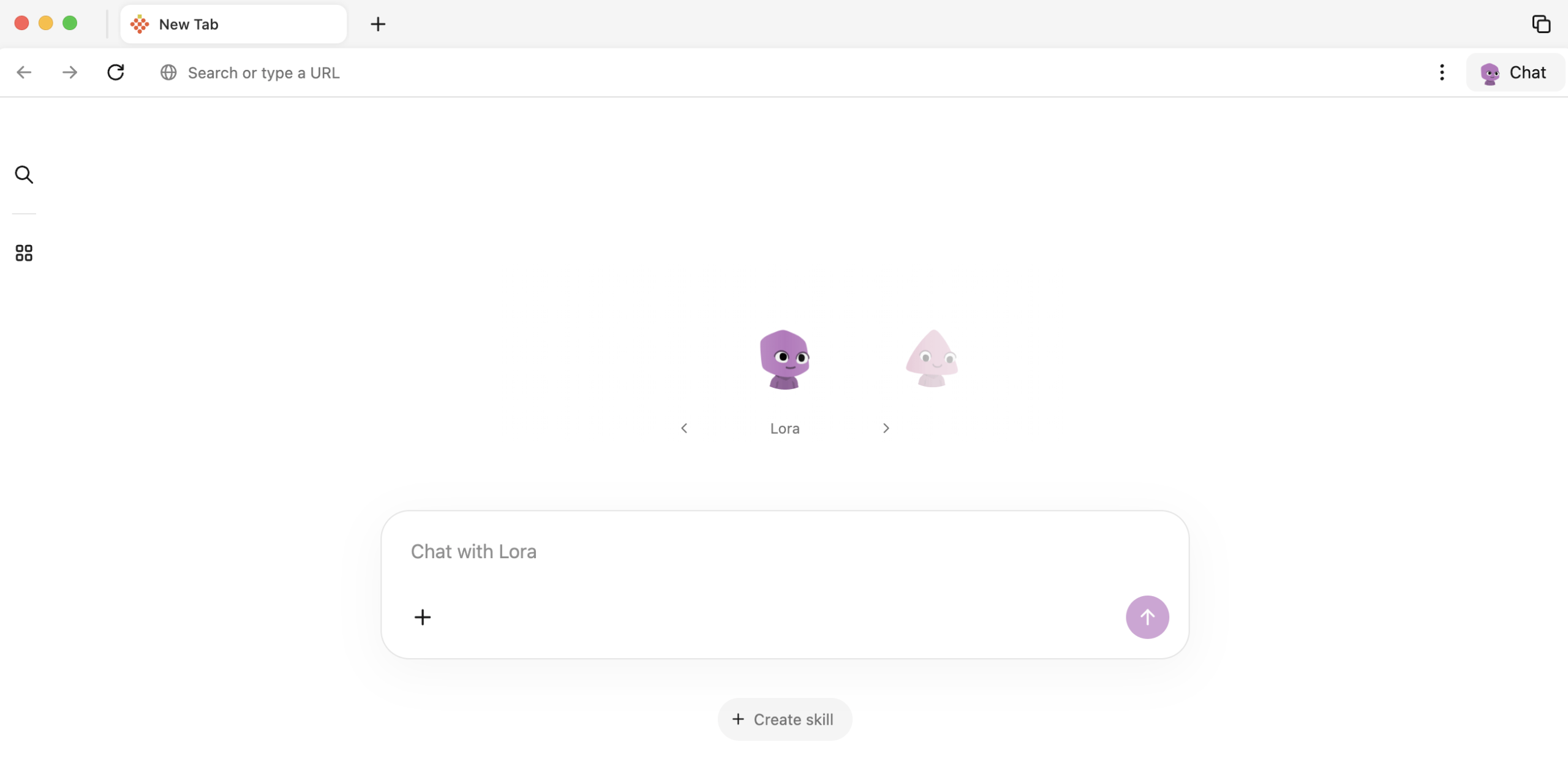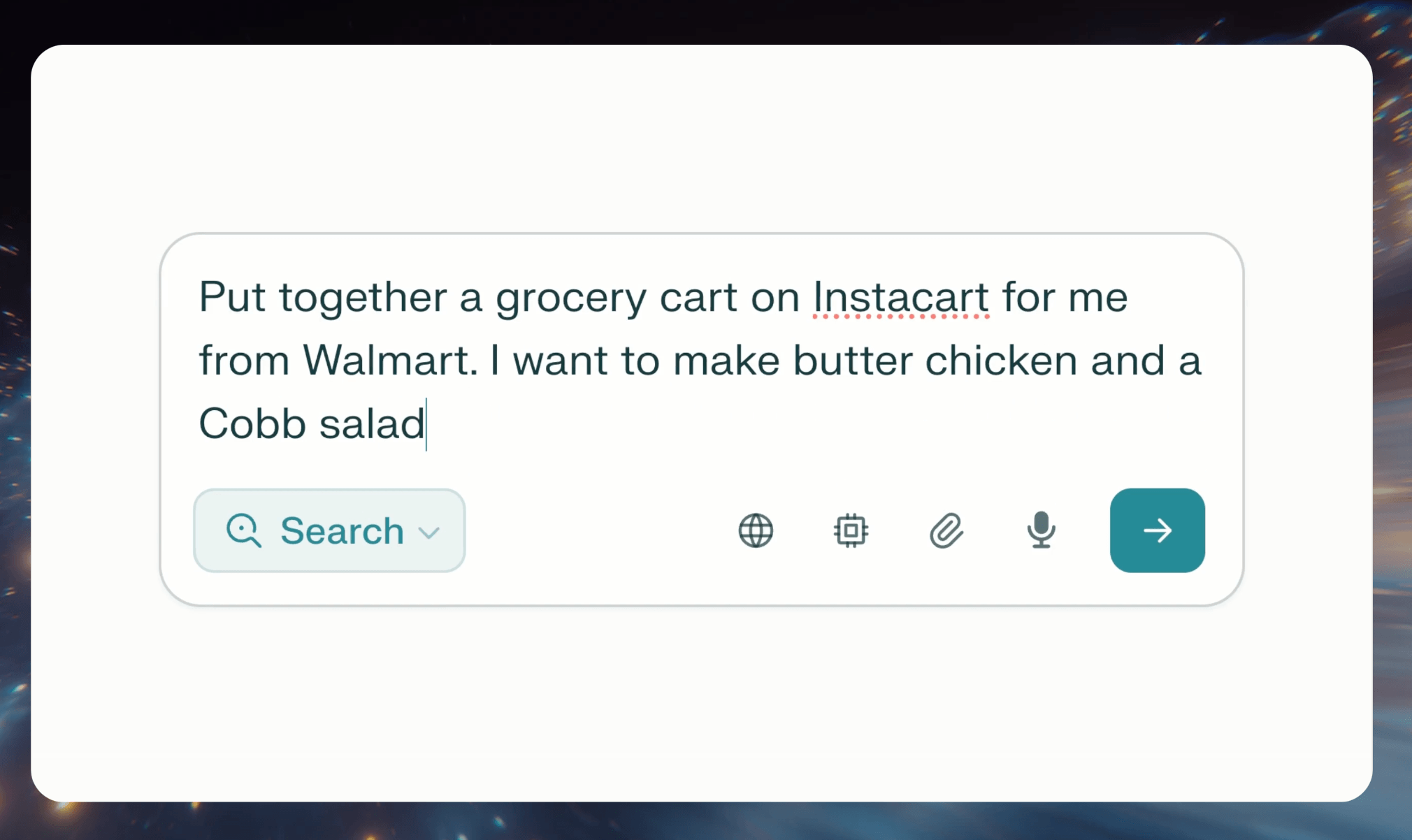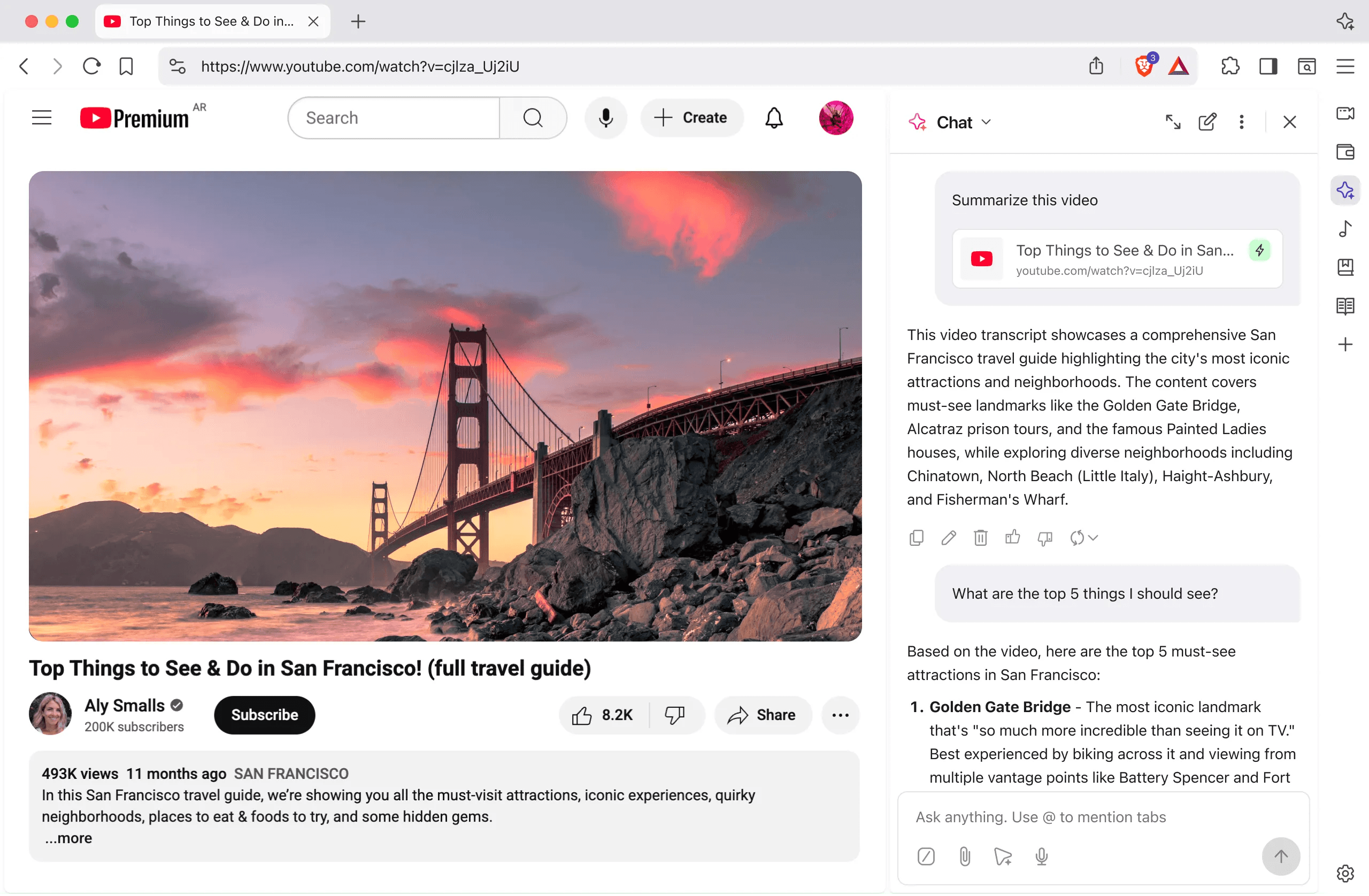OpenAI, Perplexity, Anthropic, and The Browser Company headline the cohort pushing agentic features—think summarizing, planning, and pressing buttons on your behalf—at a pace not seen since the late-’90s browser battles.
OpenAI’s Atlas arrived Oct. 21, 2025, with deep ChatGPT integration; Perplexity’s Comet landed in July; and The Browser Company pivoted to Dia mid-year to emphasize an “AI-native” experience.

ChatGPT Atlas.
The feature lists read less like old-school toolbar add-ons and more like concierge menus. Atlas aims at queries, page summaries, and automations such as shopping or travel planning. Perplexity‘s Comet leans into real-time answers and multi-source research with options for local processing. Dia overlays conversational search and workflow automation atop familiar browsing.
Startups are crowding in. Stockholm-based Strawberry ships “companions” that scroll, click, and type through long-running chores like lead generation—credit-metered and gated by user approvals. Anthropic’s Claude desktop app adds “computer use” that can steer desktops and browsers, blurring the line between agent and browser even when the tool isn’t a full browser itself.

Strawberry browser.
Then there’s BrowserOS, a Y Combinator–backed startup (YC S24 batch) building an open-source, privacy-obsessed browser tailor-made for the AI generation. “BrowserOS is an open-source, privacy-first alternative to ChatGPT Atlas & Perplexity Comet,” Y Combinator wrote on X this week.
The leading startup accelerator firm added:
“No vendor lock-in: use any LLM or search engine AI agents run locally. No tracking you for ads or data collection. Available for Mac/Win/Linux.”
M&A is accelerating the shift. On Oct. 23, 2025, OpenAI said it would acquire Software Applications Incorporated (SAI), maker of Sky, a natural-language Mac interface founded by ex-Apple Workflow (Shortcuts) alumni. The deal is poised to feed Atlas with tighter desktop control on Apple hardware.

Perplexity Comet.
Under the hood, these products marry large language models with GUI control and targeted API calls. Benchmarks cited by builders point to success rates above 90% on agentic navigation tests like Webvoyager and report task completion speeds roughly three times faster than traditional click-and-type workflows.
That performance story has product implications. Hybrid designs—using APIs where possible and falling back to on-screen navigation when needed—balance reliability with reach and can improve task success by double-digit percentages.

The Browser Company’s Dia.
Privacy and performance are differentiators. Comet emphasizes local processing options; Brave’s Leo touts anonymous prompts and on-page analysis; Opera’s Aria adds real-time web access and, in 2025, a “Browser Operator” mode to automate tab chores. These incumbents aren’t fully agentic, but they’re moving faster to embed AI into everyday browsing.
The user journey is flattening from query → answer → action. Delegation via plain English bypasses many traditional steps, and agents can parallelize tasks across tabs. That could change how people discover content and how sites earn attention, shifting SEO toward what many now call GEO (Generative Engine Optimization).

Brave’s Leo.
For users, the pitch is simple: less fiddling, more finishing. Agents draft, compare, book, and summarize; users review and approve. The practical wins show up in research workflows, shopping checkouts, and desktop tidying—especially if Sky’s tech ends up letting Atlas click around macOS on command.
For companies, there’s a strategic scramble. OpenAI’s acquisitions (including SAI) consolidate interface talent; Google is developing its own agents; startups chase niches with privacy hooks or vertical workflows. The center of gravity is moving from “assist while you browse” to “browse while you assist.”
Google, Opera, and Brave illustrate the mainstream pivot. Aria stretches across desktop and mobile with real-time answers, content creation tools, and basic automation, including optimizations for low-spec devices. Brave’s Leo focuses on private, source-citing, on-page analysis with options to route among models and store history locally. Different philosophies, same direction.
Yet as AI browsers evolve into full-fledged agents, they’re also opening new attack surfaces. This past week, Bitcoin.com News reported on how security researchers warn that hidden web prompts—so-called covert or indirect prompt injections—can hijack agents from OpenAI, Perplexity, and Anthropic, tricking them into executing malicious commands or leaking connected-account data.
Experts advise strict permission limits and sandboxing until stronger safeguards are in place across these emerging AI-native tools. By 2027, builders expect multi-platform agents to operate more like lightweight operating systems for the open web—handling research, transactions, and cross-app chores—while raising fresh questions about attribution, API limits, and guardrails.
The takeaway: the address bar is turning into a command line for everyday life. If the ’90s were about winning the window, 2025 is about owning the workflow. The browser isn’t just where you read the web; it’s where the web starts doing things for you.
- What are the “AI browser wars”? A 2025 contest among AI-native and AI-enhanced browsers to deliver agent-style assistance inside the browser.
- Which products are leading? OpenAI’s Atlas, Perplexity’s Comet, The Browser Company’s Dia, plus agentic tools like Claude’s computer use.
- Why does this matter for users? Agents compress research and routine tasks into faster, approval-based workflows with built-in summaries and actions.
- What comes next? Deeper desktop control, hybrid API/GUI agents, and broader privacy options as companies race toward 2027 multitool assistants.